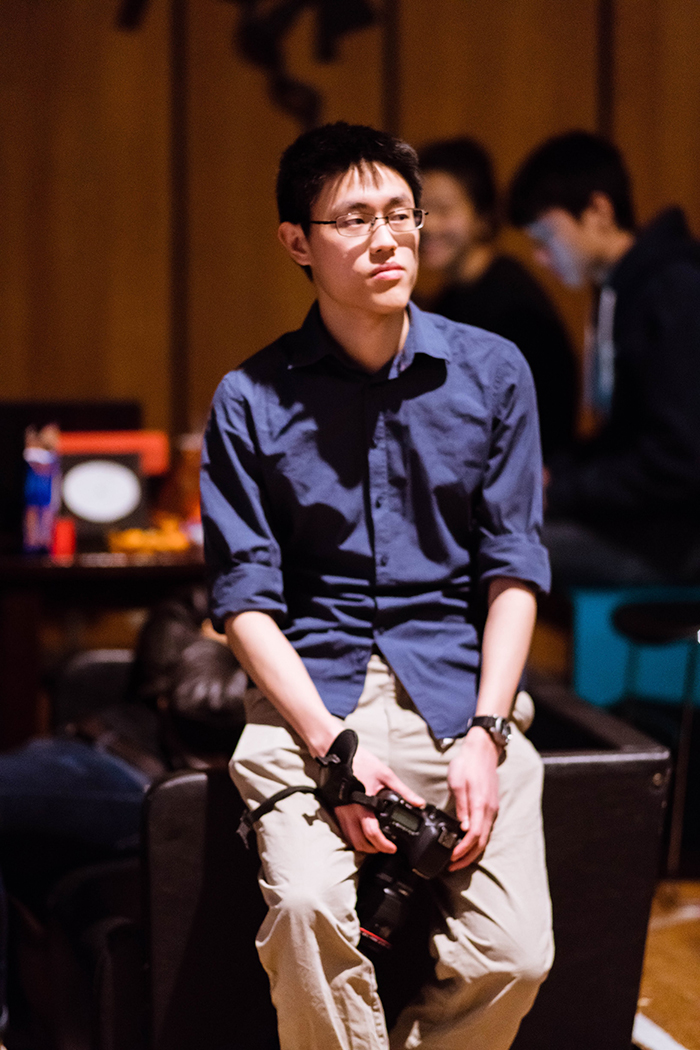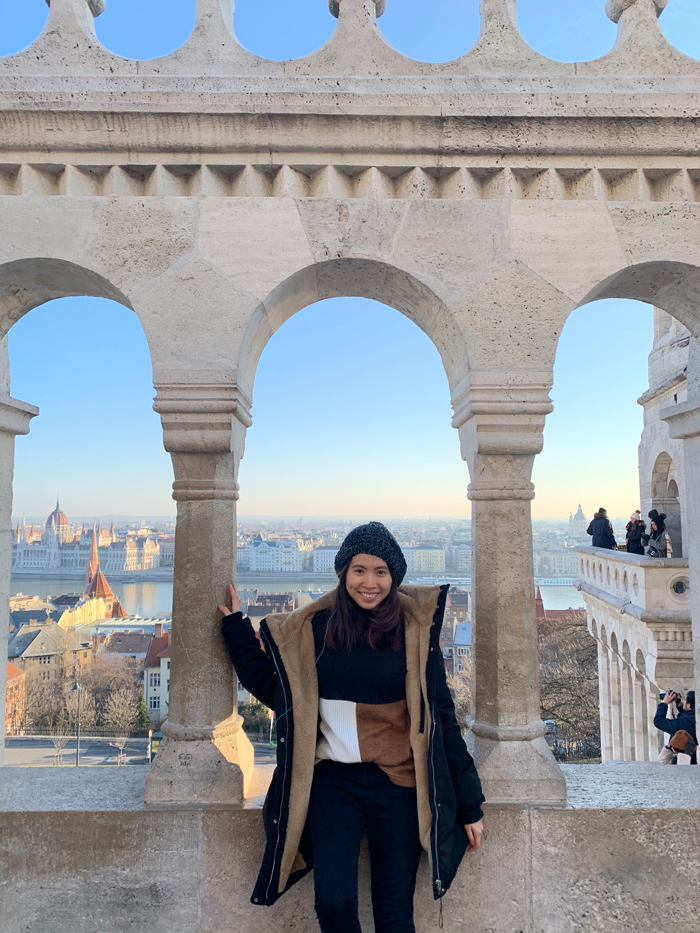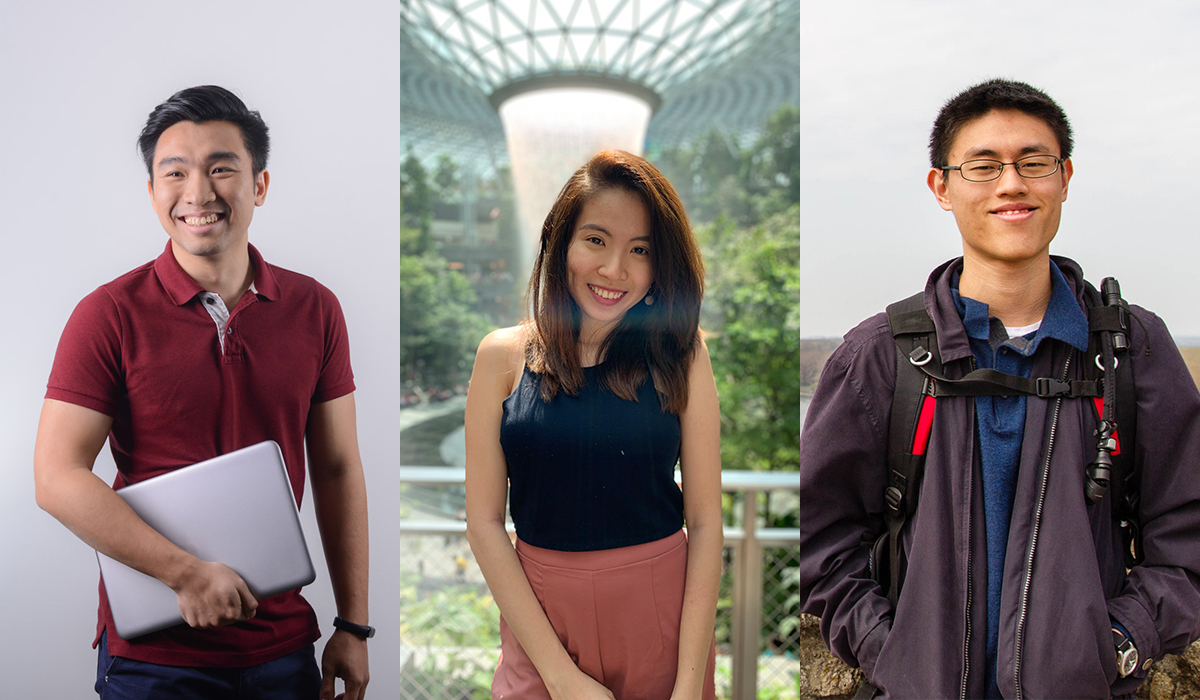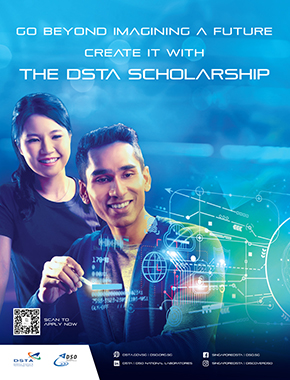Left: Donovan Chan Shi Jie is a Senior Engineer with Advanced Systems Programme Centre, DSTA, where he oversees defence projects that require complex cross-domain integration. He is a DSTA scholar and holds a Bachelor of Engineering in Electrical and Electronic Engineering from University of Manchester, as well as a Master of Science in Electrical and Computer Engineering from Columbia University.
Middle: DSTA scholar Teh Wen Yi is currently pursuing a degree in Computer Science from the National University of Singapore. Her interest in computer vision was deepened after working on its real-world applications during her internship at DSTA.
Right: Nicholas Sim Wei Sheng is a DSTA Scholarship recipient and has a Master of Philosophy (Advanced Computer Science) from the University of Cambridge, as well as a Bachelor of Engineering (Mathematics and Computer Science) from Imperial College London. He is a Defence Researcher with DSO, where he focuses on investigating and researching computer security and novel protection for SAF systems.
D STA scholars, Donovan Chan Shi Jie, a Senior Engineer in Advanced Systems Programme Centre with the Defence Science and Technology Agency (DSTA); Nicholas Sim Wei Sheng, a Defence Researcher with DSO National Laboratories (DSO); and Teh Wen Yi, who is currently pursuing a degree in Computer Science at the National University of Singapore, sat down with us to discuss the paths they took to hone their technical expertise at the forefront of defence technology. They also shared the opportunities that the DSTA Scholarship has given them.
The First Pick
While their interests in engineering, computers and artificial intelligence (AI) all began differently, the three agree that the DSTA Scholarship was the only scholarship they had considered seriously.
Both Donovan and Wen Yi felt a strong calling to play a part in developing Singapore’s defence systems and capabilities, which made the DSTA Scholarship the best match.
“I wanted to work in a field related to engineering, and DSTA is known for developing multiple engineering and technological marvels for the Singapore Armed Forces (SAF). Coincidentally, I had participated in a defence internship programme in junior college where I was amazed by these defence systems. After hearing about the complex engineering and technology that went into building them, I decided to take up the DSTA Scholarship to learn from and work with the best in the engineering and technology fields,” recalled Donovan.
Similarly, Wen Yi’s desire to contribute to the defence industry led her to think about taking up a military scholarship with MINDEF. However, her parents noted her strengths and recommended the DSTA Scholarship instead.
“I decided that I would be able to best contribute to defence technology as I am more inclined towards math and technology. After researching about the scholarship online, I applied through BrightSparks. The application process and questions asked were very aligned with my interests and values, so I just went for it!” she said.
For Nicholas, it was his passion for research that drew him to the scholarship. “I’d always had an interest in mathematics research, and the DSTA Scholarship was well known among research enthusiasts. So I knew that taking up the scholarship would allow me to further my interests!” he exulted.

Donovan Chan (second from right)
Learning the Ropes
A fulfilling career begins with an enriching education, and for these DSTA scholars, they found their university experiences essential to later successes in their work.
For Donovan, his studies gave him practical knowledge of embedded programming and machine learning, which could be readily applied to his work in developing advanced military sensor systems and research collaboration on artificial intelligence algorithms. Nicholas also found himself “depending heavily” on his grounding in compiler theory and operating systems during his day-to-day work in researching computer protection systems.
However, they all emphasised intangible gains over practical ones. “An engineering degree offers much more than just technical knowledge. It trains you to think critically, logically and creatively. As a defence engineer, I am challenged every day to analyse real-world problems critically and create solutions to address them logically, using our specialised skills and technology,” Donovan explained.
Nicholas added: “My biggest takeaway [from university] was realising that it’s a large world out there, and that there are many interesting things to explore.” Through pursuing a Master of Philosophy in Advanced Computer Science at the University of Cambridge, he gained new insights into the many ways technology has become an increasingly important part of modern life, as well as the privacy, legal, and security implications of seemingly trivial technology such as networked toasters and medical teleconsultation.
“I’m also deeply grateful for the research and communication skills imparted by my advisors across two dissertation projects, as well as the broader perspectives of technology which they have shared,” he elaborated. “If collaborative research is extracting energy from food, then effective communication is the crucial pre-digestion step - proper cooking and chewing!”
Reflecting on her university experience, Wen Yi said: “I have learnt important soft skills through the many activities I’ve been involved in, such as my faculty and residential college’s student life projects, hackathons, and internship. I believe mastering these skills is what will set us apart from others.”

Nicholas Sim
Applied Learning
Armed with new knowledge, the scholars quickly put their learning to effective and immediate use.
“A recent highlight for me was getting to apply my knowledge in sensors and data analytics to help Singapore combat the spread of the COVID-19 virus. I was part of a multi-agency initiative that delivered prototypes of temperature self-check systems to encourage people to check their temperature on the go regularly,” Donovan explained. “As the outbreak situation was constantly evolving, we had to work fast and think quickly on our feet to deliver a solution that worked well.”
Nicholas agreed: “At DSO, hands-on work starts from day one.” From the moment he joined, he was engaged in researching computer security and novel protection for SAF systems, and developing tools and techniques to analyse computer programs.
“One of my projects is a collaboration with foreign experts on automating malware analysis. This has involved a deep study of some of the most powerful (and problematic) binary analysis techniques available today,” he elaborated.
Similar learning opportunities abound for DSTA scholars still in the midst of their education as well. Wen Yi deeply appreciated the privilege of attending various exciting events such as the Singapore Defence Technology Summit, where she was able to hear about state-of-the-art defence technologies from top global experts. She has also interned at DSTA’s Digital Hub, which intensified her interest in AI.
“I got to work on several computer vision projects, and applied AI concepts to real-world problems. I really like DSTA’s strong engineering and technological culture, as well as the can-do spirit and creative mindset of my mentors and colleagues,” she recalled.
“There are also various career tracks available in DSTA that cater to different technical interests and specialisations. In addition, the support network that DSTA provides is tremendously helpful for new staff to figure out how to advance their careers, and also great for undergraduate scholars to prepare themselves for their future with the organisation.”

Teh Wen Yi
Contributing Back to the Nation
For aspiring DSTA scholars, Donovan has some practical words of advice: “Stay curious and always look to improve yourself. If you want to do something meaningful with your skills in science and technology, contribute to the nation and gain unique learning experiences, the DSTA Scholarship will give you many opportunities to do so.”
“Be conversant about your fundamentals and do a Final Year Project. The former helps you to become adaptable, while the latter gives a taste of what it means to formulate a research problem,” Nicholas added.
Wen Yi encouraged: “If you like science, engineering and defence technology, there’s no need to even think twice about applying! Just take the leap of faith, because there really are many amazing opportunities here!”
A Deep Byte
Wen Yi chose to study computer science even without a programming background, and has never looked back since! When she is not geeking out about computers and programming, she enjoys playing video games and has also participated in BrainHack 2019, which is an AI and cybersecurity event organised by DSTA for students.


